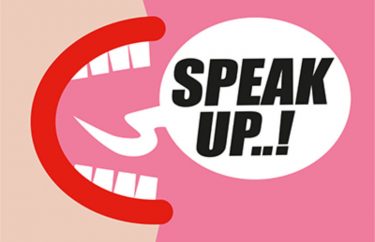How speaking up gets you grease

Courtesy Shutterstock
The following is one of 18 lessons for my new remote work training company. You should totally ask your employer to buy it. 😉
Admitting that you’re stuck is a hard thing to do. Asking for help is even harder, especially for the more prideful souls among us, of which there is no shortage. On top of that, many of us refrain from asking for help because we think doing so is imposing on or making more unwanted work for others.
Nothing could be further from the truth. While it’s true that asking for help sometimes creates more work for others, we do not get to decide what is unwelcome work for others. Predicting or telling ourselves that is an unhelpful projection. That may be true some of the time, but research shows that humans are usually willing to help. As social creatures, it’s in our DNA and has been for tens of thousands of years.
But to get the help we need, either personally or professionally, we must ask. We must speak up. No one else will do that for us and, in fact, it’s no one else’s job except ours alone. Waiting for someone else to ask on our behalf is not only unfair, it prolongs our frustration, delays fulfillment, and saps motivation.
In the 19th century, a popular American saying reminded people that “The squeaky wheel gets the grease.” In other words, the most noticeable or loudest problems are the ones that will get the most attention. Furthermore, the wheel that gets the most attention is the one that will last the longest.
So if you need attention, some help, some maintenance, or anything else, you must squeak so others can be alerted to your needs. If you do, you will last longer and perform better in the long run.
While this adage has always been true in the workplace, it’s especially true in the remote, work-from-home workspace. Since these environments isolate us more than centralized offices and prevent natural interactions with our colleagues and trusted advisors, many of us might be tempted to avoid speaking up. Not only is this wrong for the individual, it’s hurtful to the organization that depends on the quality and timeliness of your contributions.
So speak up. Send an email. Make a phone call. Text someone, anyone. If you choose to stay silent, you will likely be overlooked and neglected and that’s no one else’s fault but your own. Forgive me for sounding like your grandmother, but this simple truth is so important it must be shared again and again and… again. And it applies to everyone, entry-level employees as much as senior executives.
No one is immune from needing help. Again, this is coded in all of our DNA. So if you need grease, even the tiniest amount, speak up so you can get the attention you need to drive faster and win more races.
On the flip side, if you’re in a management position, there is a fallacy when it comes to the idea that “no news is good news.” While that’s certainly true of teams that always squeak when they need grease, that type of team doesn’t exist in reality. You can count on some team members to not squeak even if they need help. The trick is to encourage them to do so again and again.
If that doesn’t work, you will likely need to prime them with something like, “It looks like something is bothering you. I’d like to help. Would you like to tell me about it?”
